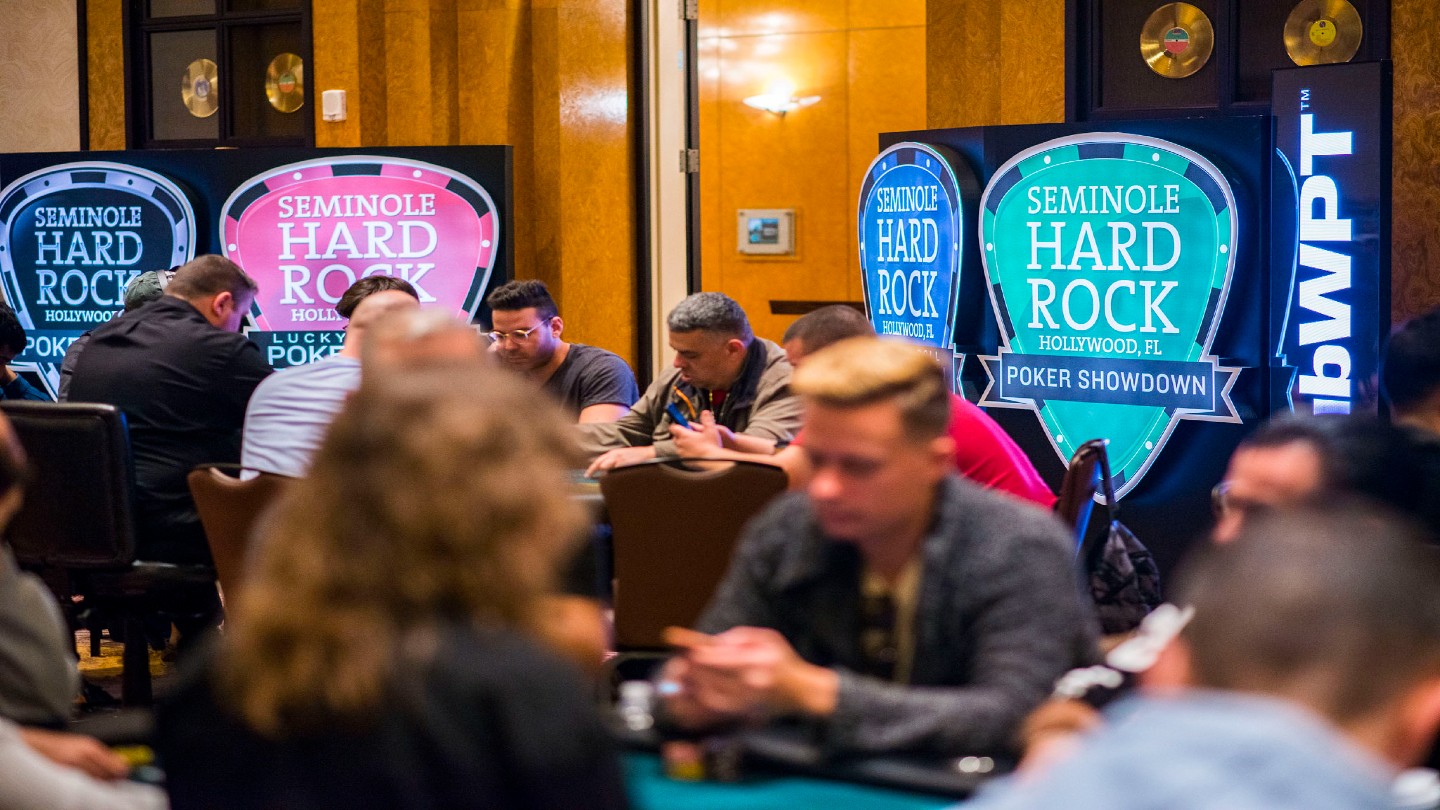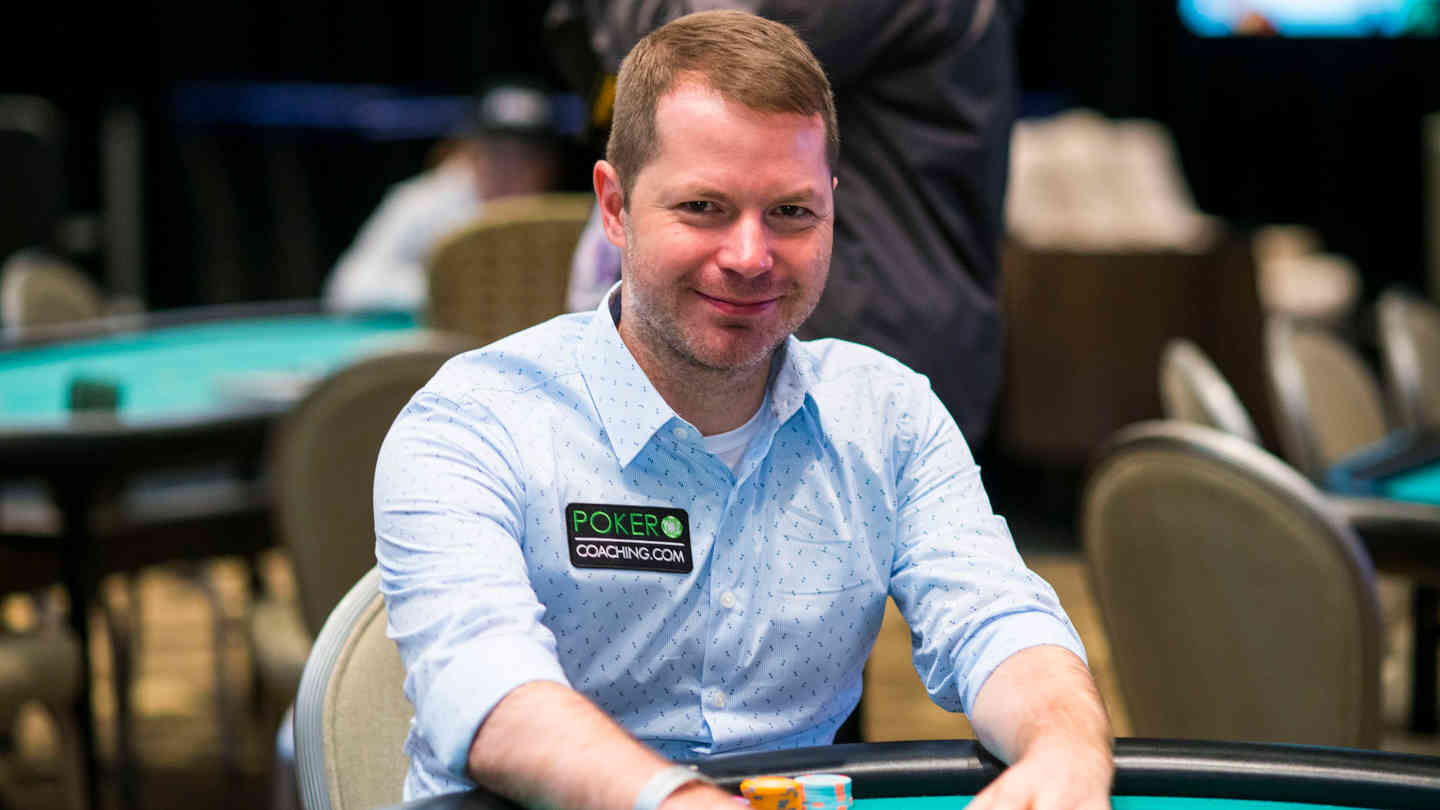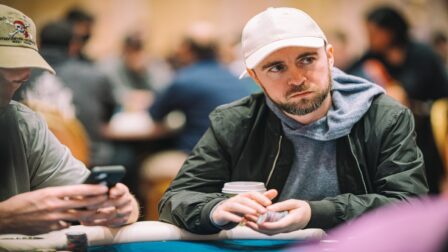How to Master Poker Variance: The Best Tips For Your Mindset
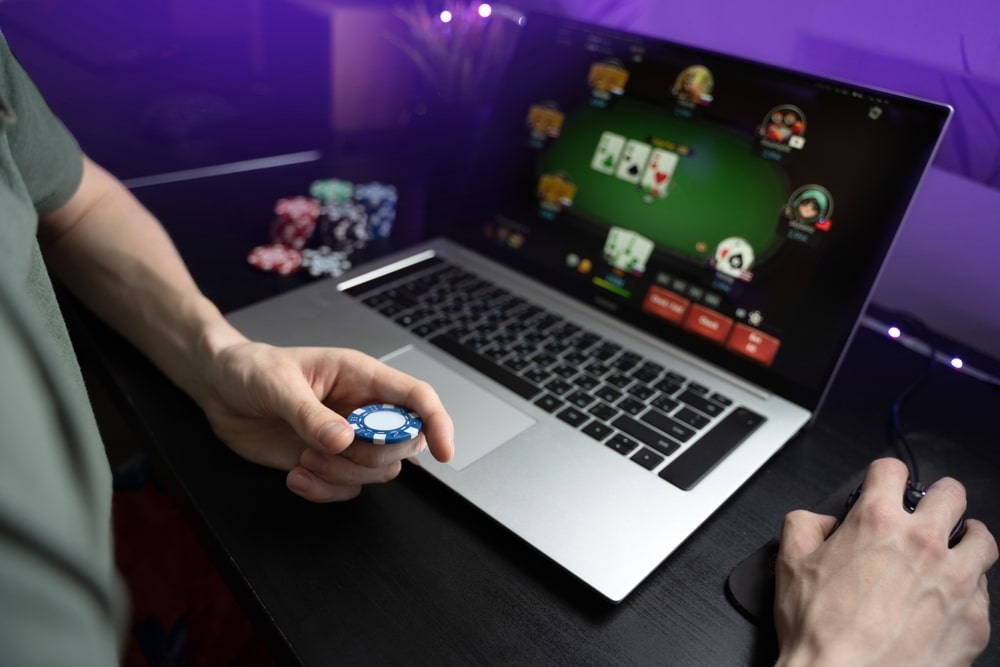
12 minutes
Last Updated: March 19, 2024
To succeed in poker, one must learn different strategies, master the use of various poker software solutions, and keep up with changing environment. It is a long and hard path to success if you want to be on top of this game.
However, there is another side to poker that is often neglected, but equally important, if not even more so, for anyone looking to build a long and successful career in the game.
This other side is often referred to as the mental game, and it involves much more than just learning your ranges, betting frequencies, or the math. Today, I want to cover this topic.
Table of content
- Understanding your goals
- Preparation to success
- Dealing with variance
- Controlling your emotions
- Learning to quit on time
- Finding time to relax
- Conclusion
Understanding Your Motivation & Mindset
Figuring out what you want to do for a living is probably one of the toughest decisions you have to make in life. There are so many different career paths available, and each one has certain advantages and drawbacks that come along.
Poker is no different.
Playing for a living can be rewarding in many of its aspects, but it has its downsides as well. While the game provides a high degree of freedom and many opportunities in life, it also requires a strong mind frame to deal with all the rough patches along the way and excellent money management skills.
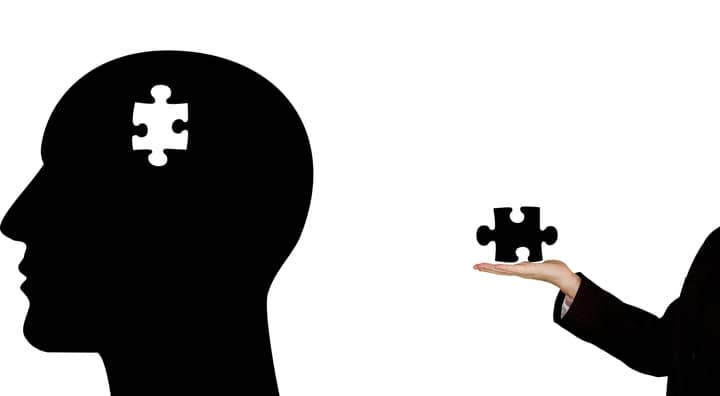
So, there are a few questions you should answer before devoting your time to this game:
- Why do you want to play poker?
- What is primary motivation? Is it money, or passion for the game?
- Do you have enough time and dedication to take this game seriously?
- Why do you believe it would be the right choice at this moment in your life?
- What you want to reach playing poker, what is your end goal?
For those still deciding how much time they want to devote to the game, all of these questions are very important. But, they are equally as important for those already playing poker full time.
Poker players have to deal with many emotional swings, and it is much easier to get through them if you understand the reasons that motivated you, and know why you are playing poker in the first place.
Preparation Is Key to Success
To an outsider, playing poker, whether online or live, can seem like an easy thing to do. You sit down and play some cards for a few hours every day. How hard can it be, especially once you get your basics, right? It’s just a simple game, isn’t it?
However, this couldn’t be further from the truth. Any decision during your session can have serious monetary implications, and playing a single hand wrong can wipe up the entire profit you’ve been accumulating over the past five hours.
A bad play deep in a tournament can make the difference between a small, virtually irrelevant cash and a massive six or seven-figure payment.
While bad decisions can’t be avoided entirely, they can be significantly reduced by concentration and ability to focus every time you play – and this starts away from the tables.
When you go to play unprepared, even simple things can throw you off balance. If someone slow roll or throws an angle shooting play, you might start tilting without any reason. Something that would generally do not affect your performance can hurt a lot when you are not mentally ready for the game.

You need to get enough rest, have a clear mind, and warm-up before playing so that you would be fully prepared every time you sit down at the table. To reach that, you need to have a lot of energy and focus on your side, and there are a few things that can help you with this:
- Getting enough sleep: if you’re playing tired, you’ll struggle to maintain your focus and your ability to make good decisions will be seriously hindered.
- Not playing hungry: don’t start your session thinking you can eat later. You should eat before you start so that you have enough energy to last for a few hours, and have your snacks ready if you are in for a long session.
- Do some exercises before you sit down to play: getting some physical activity just before your session will help improve your circulation and wake up your brain, which is not a bad thing, right?
- Clear your thoughts and get into the zone: try and leave all other problems and obligations behind before you start playing so that you can fully focus on your session.
- Warm-up your poker thinking before the session – review some hands, read a strategy article, a watch a video of hand analyzes to get in the zone.
As you can see, this advice doesn’t have much to do with anything specifically poker-related. Learning about the game and improving your poker skills is given – that’s something I assume you’re doing already. If not, check out reviews of poker training sites, and spend some time to master the game.
If you want to go above and beyond, taking these steps to prepare yourself physically and mentally for every session will help you make better decisions, keep concentration and focus on the game, which will lead to better results.
Dealing with Poker Variance
No matter how good of a player you are, you won’t be winning all the time. Variance is a standard part of the game of poker, and all players go on good and bad runs. While there are certain activities you can take to reduce the variance or lessen its effects on your bankroll and mental state, there is no way to avoid it completely.
You might be a winning player, and over a large sample of hands, you’ll realize your expected win rate. However, due to poker variance, you can go on a relatively long losing stretch, which can influence your mind frame.
On top of that, you have to know that variance can be especially brutal in multi-table tournaments, where it can take hundreds if not thousands of MTTs to realize your real ROI.
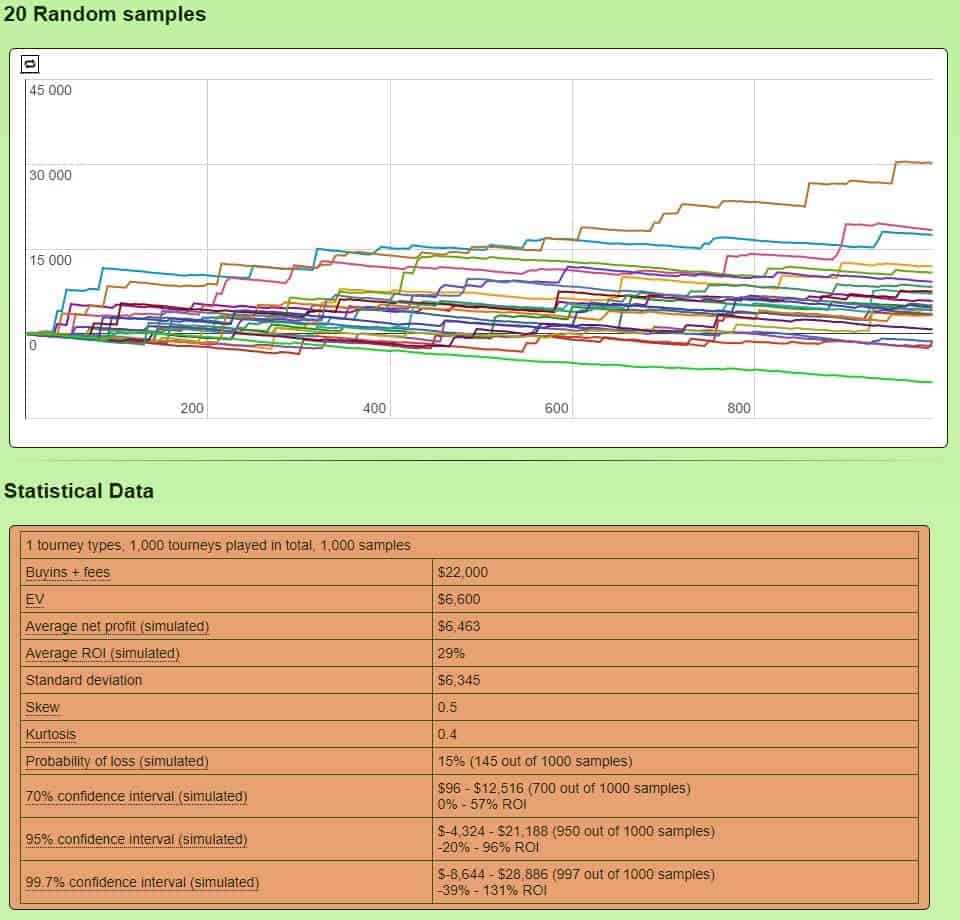
I ran a variance calculation so that you could see how it looks. Assuming you have a 30% ROI in the tournaments you play (which is an excellent result for anything but the lowest limits), you still have a 15% chance of losing money after playing 1000 tournaments.
So if your bankroll isn’t big enough to support the swings or you’ve been taking shots at higher stakes, it can be tough to continue playing your a-game and keeping the concentration.
Therefore, having sufficient bankroll for the games that you play is one of the most important things every professional poker player should od.
While you may hate poker variance (which seems to be a very popular opinion), it is the only reason why poker is still profitable. It is because of the variance that even a weak, losing player can have big winning sessions and walk away with a huge tournament hit.
It gives the appearance that everyone has an equal chance of winning, and keeps recreational players in the games. So next time, when you be swearing after the bad beat, think about it, calm down, and continue to play your best poker.
Be Aware of Variance & Take it Head On
So, if you play poker, the variance will happen – there are no two ways about it. So, you should be fully aware that there will be losing stretches in your career and prepare for them.
It means managing your bankroll in a way that pretty much ensures that you never go bust no matter what happens. Eventually, things will even out, and you’ll get back to your actual win rate.
The problem is, these rough periods can have a bad effect on your overall mental state and have you start questioning your decisions too much. The best way to deal with this problem is to take it heads on by:
- Analyzing your sessions with an open mind & looking for mistakes you might be making
- Working of the table to improve your strategy and analyze your opponents
- Looking for weaker games or even dropping down in stakes for a little while to get your confidence back
Keeping Your Mental Game and Emotions in Check
With long-term variance in poker and short-term bad beats, annoying opponents, and everything else you’ll encounter while playing, it can be extremely difficult to leave emotions. But, as hard as it may be, it is the only way to succeed in poker.
The moment you let your emotions dictate any of your decisions at the table is the moment you need to stop and walk away.
As Elliot Roe explains in his A-Game masterclass, every time you make a sub-optimal decision for whatever reason, it means you are tilting. So, you not necessarily need to be breaking things or spewing money to be officially recognized as tilting.

One of the more significant difficulties here is recognizing when emotions start influencing your decisions. When you’re in the heat of the session and suffer a terrible beat or get bluffed in a huge pot, you’ll instinctively tell yourself you’re fine, and that you’re still playing your best game.
But, your decisions might be far from optimal, and you can struggle to notice that you are playing in a way, you would never do in a normal situation.
Simply stopping for a second and forcing yourself to think on the next hand before you make any decision might help you a lot. Evaluate your next play and give yourself an honest answer to the question: is this something I’d normally do?
If you recognize a decision is bad and still go with it, this is the red flag.
You need to stop playing and walk away. Continuing in that state of mind won’t bring anything good as you’ll go into a slot machine mode, chasing after one big hand to recoup your losses. Stop and take a break.
The problem with tilt and emotions is that it is a vicious spiral where one wrong decision leads to another, then to another, and before you know it, you’re hugely stuck for the night and can’t even figure out at what point things started to fall apart.
If this happens, go back in your head and think through what was the trigger and how it changed the way you play. Obviously, you will not be able to get back the money you lost, but you can identify what is causing the tilt and avoid it in your next session.
Build a Habit To Quit Poker Session On Time
As we already covered, if you are not able to play optimally because of your emotions or get distracted from the game, you should simply quit playing and take a break. But that is probably the only reason when you should shorten your planned session.
However, something I profoundly disagree with is having a stop/loss limit based on your results in the game. It just not make much sense.
I am fully aware that it is something that many players advice, but did you ever thought why? I think it is going to be quite hard to find a reasonable answer to this question.
If you can play with full concentration and keep your “A” game, it should not matter either you lost or won a couple of buy-ins. In today's games, edges are quite small, so naturally, you going to encounter bigger swings and if you quit your session whenever you lose a few buy-ins when you are going to play?
If this is the case, you will totally miss playing on some days, if you start a session with a bad beat or a small swing. That will cost you a lot of money in the long run, and you will end up wasting your time on something else when you should be playing.
Of course, if you change your game after losing those buy-ins and start playing in the way you should not play, like opening any two cards or chasing draws trying to take back your money – then you should quit.
But it is not because you lost some money, it is because you started playing poorly.
The same goes for winning. I saw many players starting to play in a very different way after winning a few buy-ins, just because they do not want to lose it back.
You should not be playing in a harmful way just because you want to prevent yourself from losing money. This is not a winning strategy and will lead you to make many -EV decisions.
However, if you can keep up with your strategy and play your “A” game, you should continue playing despite small swings that you will encounter. This is how this game works. Most professionals agree on this topic, and even guys from Upswing poker lab backs it up, so make sure to follow this advice.
Do Not Be Afraid of Resting
Many poker players are high performers, and they think that they should be playing and learning every single minute that they have, but that does not lead to optimal performance.
Working on your game is essential if you want to reach long-term success, but you should not easily skip resting as well.
Your brains need resting to process all the information, and some pleasant activities can help you more than you think.

So whenever you feel tired, demotivated, or completely unprepared to play, do something pleasant for you or even take a nap. Either watch a funny video, read a book, play video game or even visit a PayPal casino to gamble away a couple of bucks.
Do anything that helps you relax, as long as it is not related to poker. You will see, after some quality rest, you will be able to get back to the games with a new passion, and it will easily pay for all the time you spend away from the tables.
Conclusion: Strive to Play Your Best Game at All Times
There are many elements to being a great poker player, and some of them don’t have much to do with cards and math. Poker is as much about how you see the game and how you prepare for it as it is about how much you know about strategy.
The only way to succeed in the long run is if you can reconcile both sides of the spectrum. Keep working on your game, but don’t forget yourself and continuously improve your overall life within and around poker.
By achieving the right balance and knowing where you’re headed, you’ll be able to give your poker career an incredible boost.
At the same time, you’ll be able to enjoy your time away from the tables much more, which is exactly what you should strive to achieve.
Summary:
- Understand your motivation for playing to make sure you keep it
- Spend a few minutes to prepare for your session, and you will get better results
- Understand how big variance in your games can be to prepare mentally, and have a proper bankroll
- Do not force yourself to play when you do not feel good
- Find some time to rest and clear your head between playing











